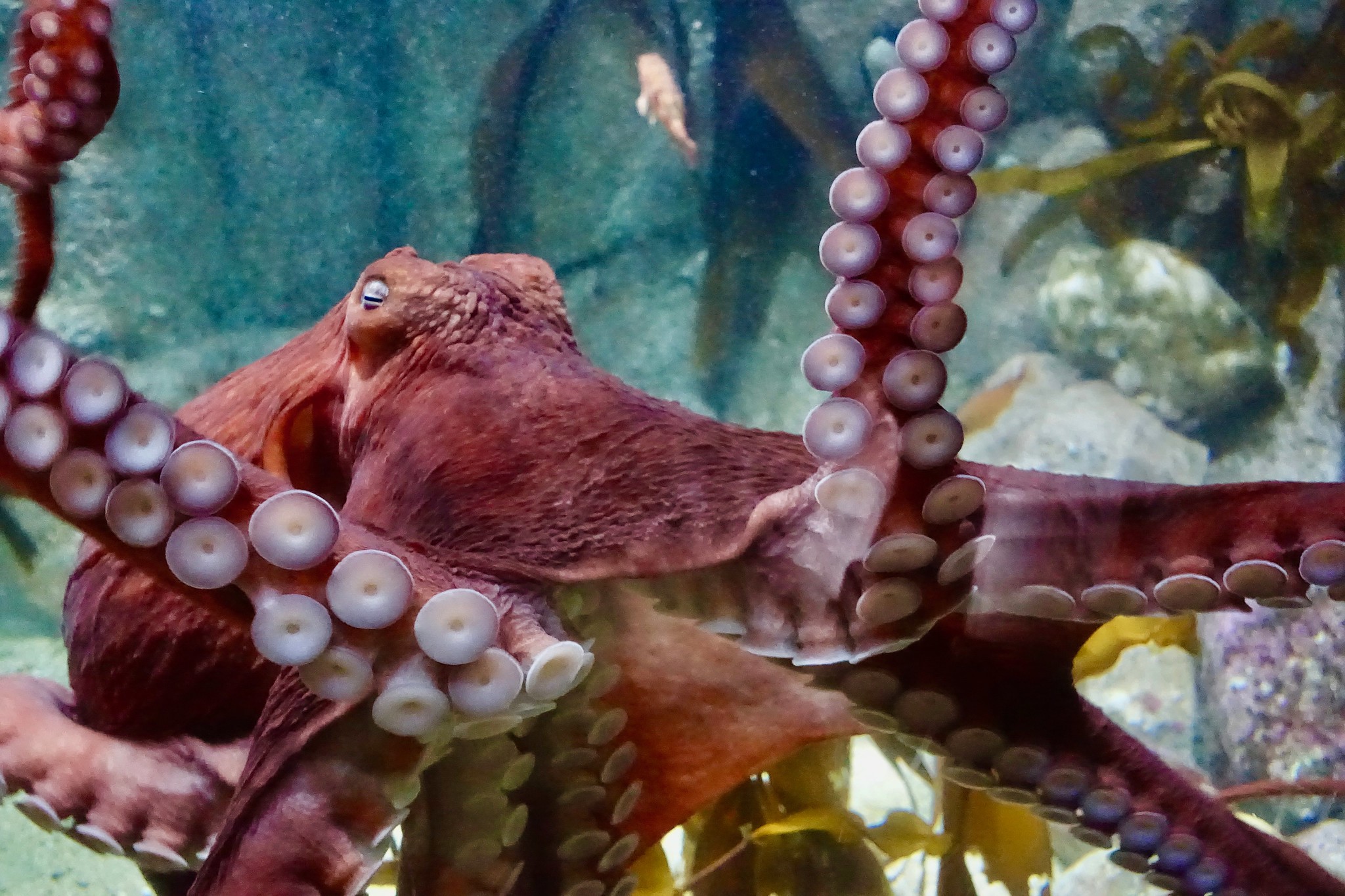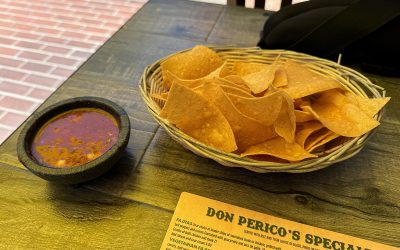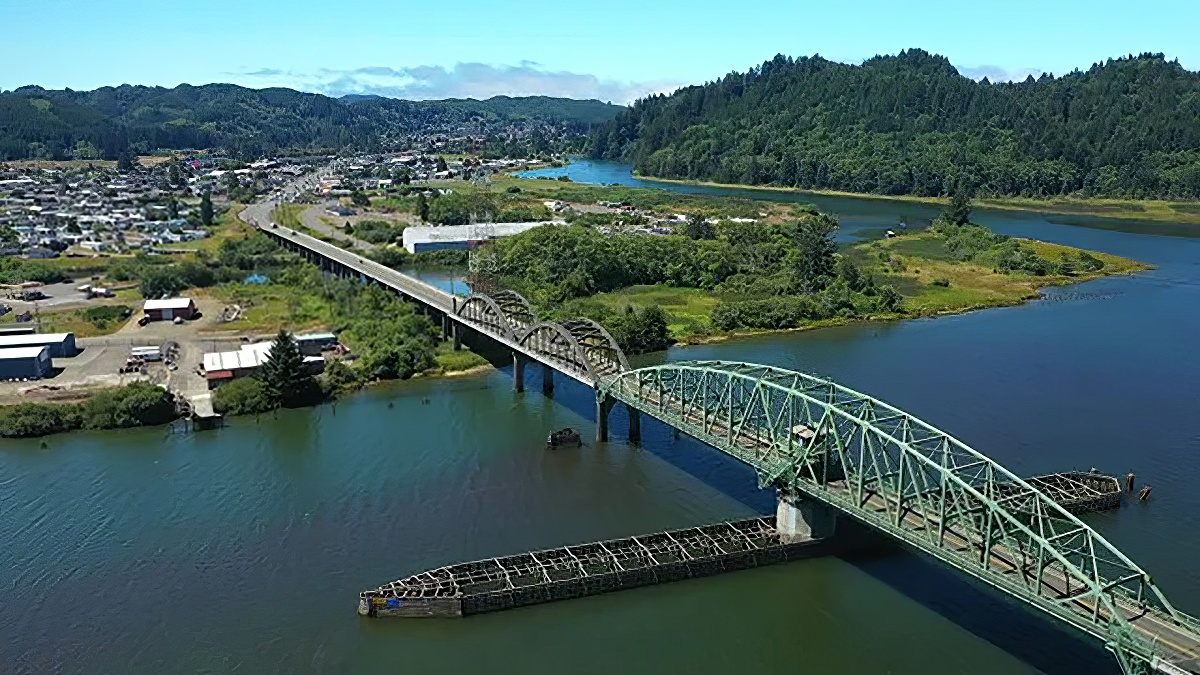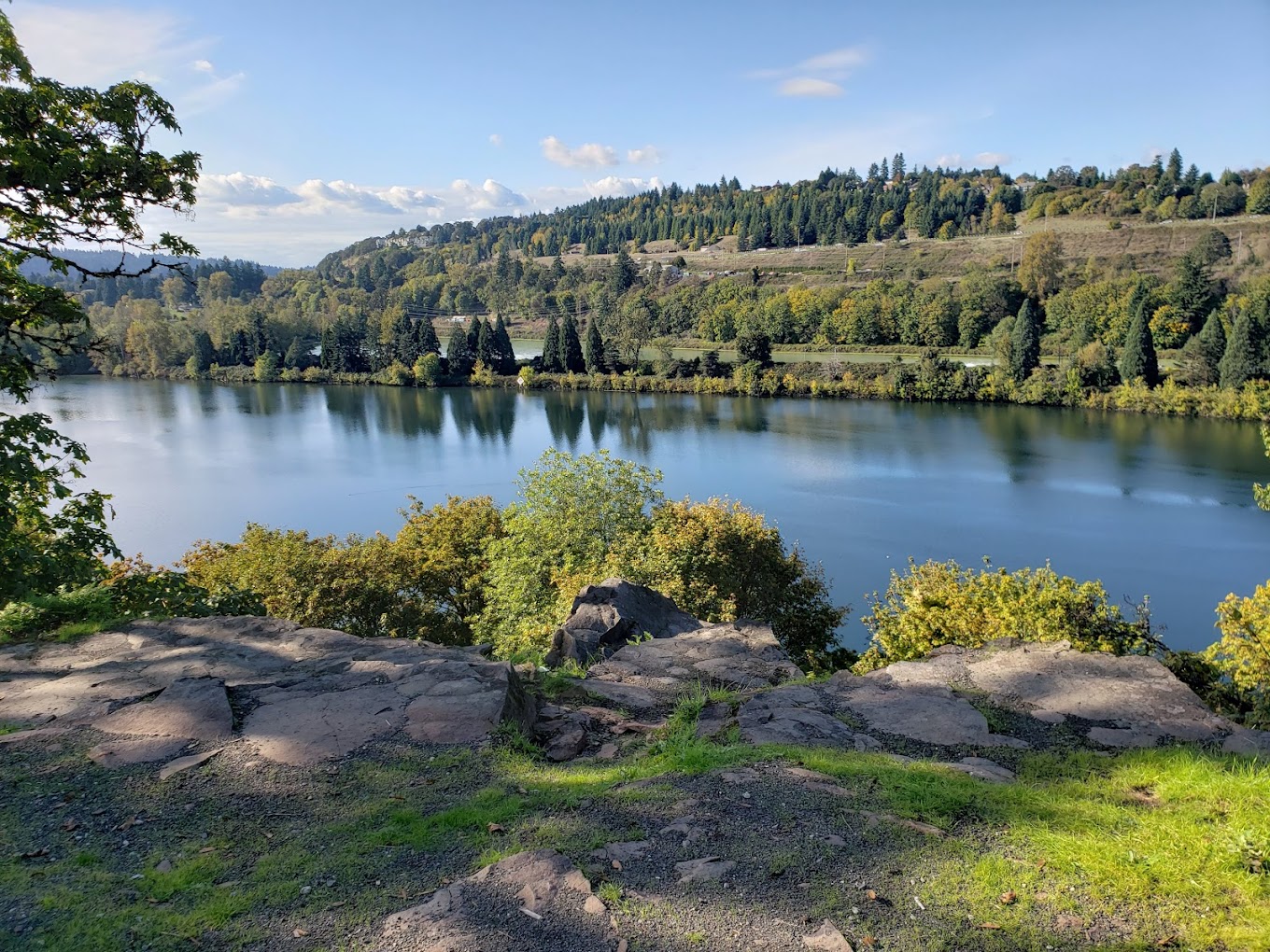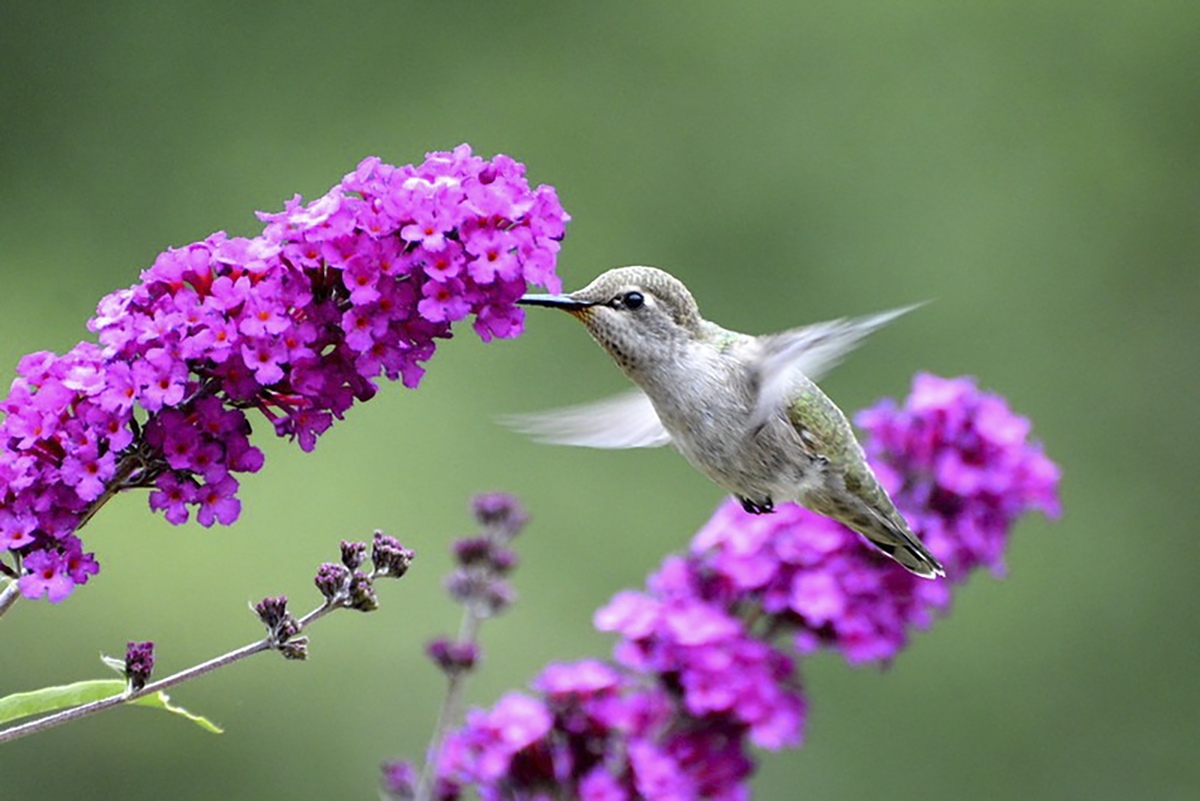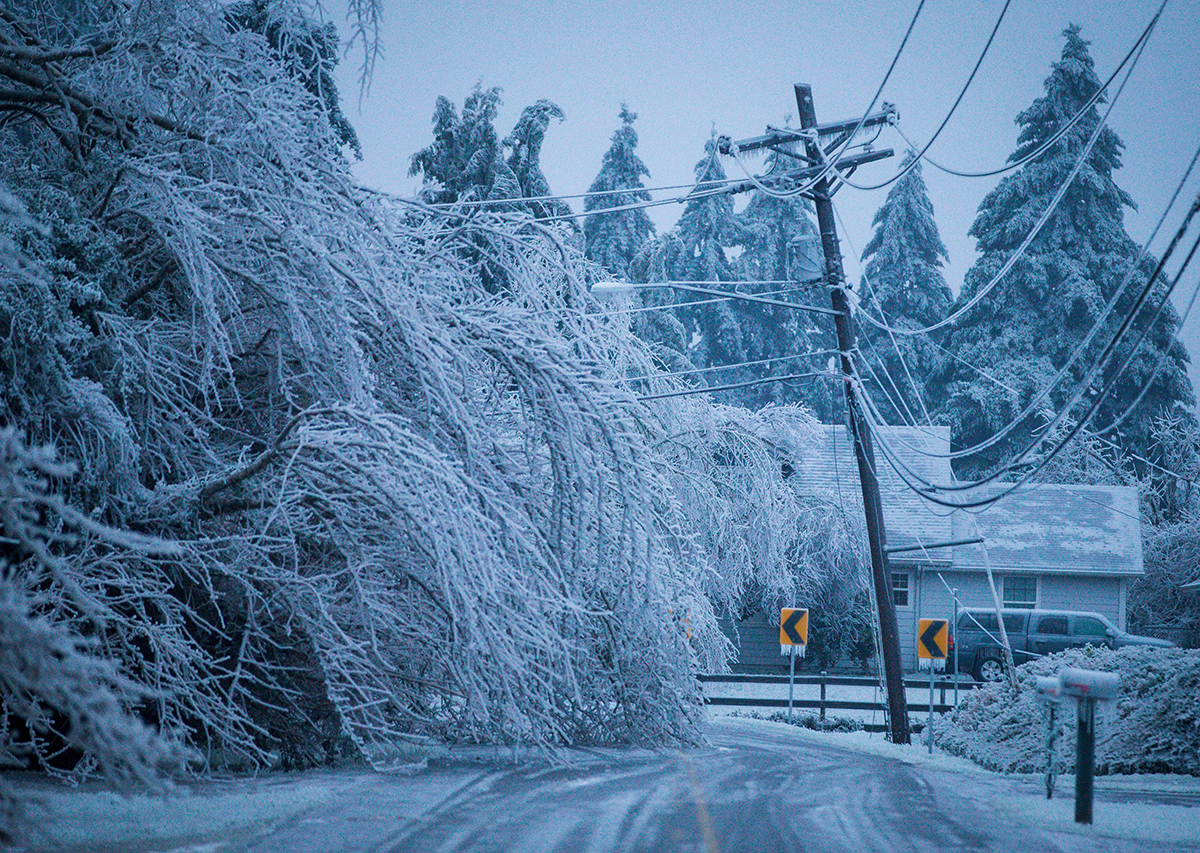Crabbing is a dangerous and often tricky profession. Every day crabbers risk their lives just to fill our stomachs and make a modest wage. We're grateful for their efforts. There's nothing better than the salty aftertaste of fresh-caught crab, especially when it comes in a bowl of chowder or smoked and dipped in butter and garlic. But sometimes it's easy to wonder whether it's worth the trouble. High winds and treacherous seas can easily sweep away a fishing boat, taking the lives of the fishermen with them. So why try?
Maybe it's more than just habit and the daily grind that keeps them fishing. They might see something landlubbers miss. Nature has a way of reaching out to us and reminding us that she can still surprise us. The flick of a whale's tail or a dolphin surfacing with a smile could be enough to compel anyone to go out. If not that, then the mystery--the alien creatures and weird sightings, things we might never understand. It's hard to forget the moments when those oddities find their way into our daily lives.
That's what happened on July 3, when a group of fishermen found a giant Pacific octopus clinging to their crab pot in Yaquina Bay, not far from Newport, Oregon.
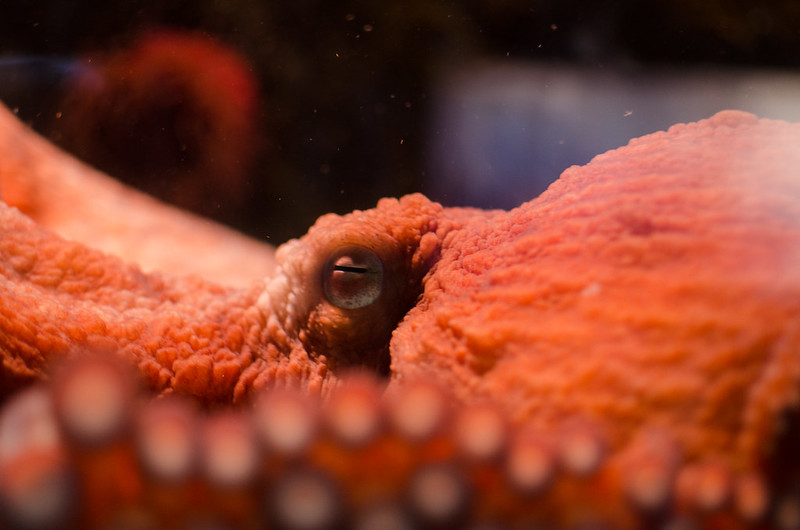
Giant Pacific Octopus. Photo by Colby Stopa via Flickr CC2.
It was determined to stick to the trap, but they were able to pull it off and get to safety. Nick Johnson, one of the men aboard the boat, was able to catch a video before they did.
WOW! 🐙 Check out this giant Pacific octopus that was caught up in a crab pot. Follower Nick Johnson sent in this video and says that pot was about 90 feet deep. pic.twitter.com/bOBir3ZV8N
— Fox12Oregon (@fox12oregon) July 4, 2022
What made this so amazing is that these octopuses aren't just an uncommon sight. They're a reminder that the animal kingdom is still a mystery to be solved, one that pushes the boundaries of what we think we know to be true.
The Giant Pacific Octopus: Mysterious, Magnificent, And Misunderstood
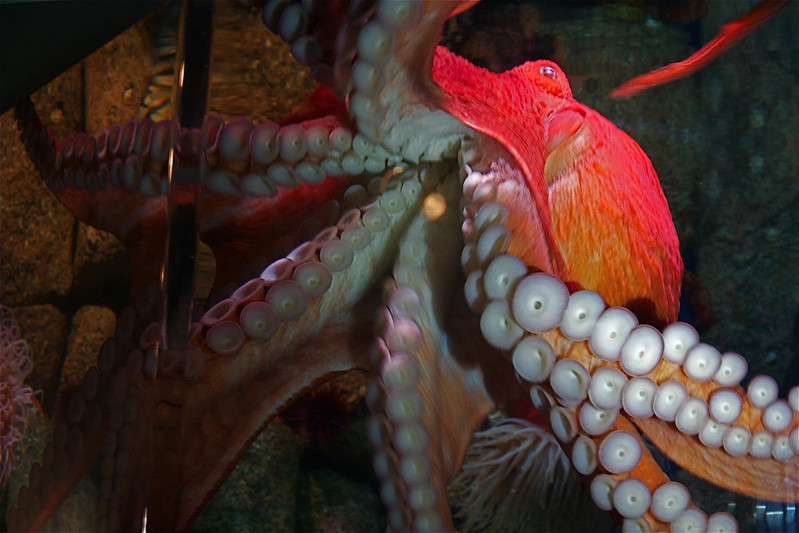
Giant Pacific Octopus. Photo by Bevis Chin via Flickr CC2.
The ocean is the keeper of secrets in our world. There are wonders there that no human will ever lay eyes on, but there are times when the tide pulls in, and the things beneath the water make themselves known. If you're lucky, you might get a rare glimpse of an eight-legged brute scrambling to get away, or it could be camouflaged as a rock while it hunts creepy crawlies. Even rarer still you might see the largest and longest-lived member of the species, the giant Pacific octopus.
Known to inhabit the waters of the north Pacific, this behemoth cephalopod can live to be five years old, an eon compared to its cousins. The largest ever caught was 600 lbs and had a span of 30 feet, but they usually measure out to about 17 feet and weigh 150-175 lbs. That's as much as a full-grown man, making them a formidable presence when they do appear.
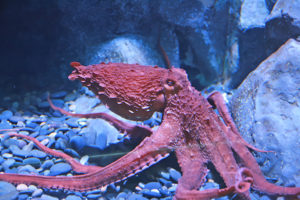
Karen / Flickr
The most intriguing members of the animal kingdom are often the hardest to find, and that is definitely the case with this species. Giant Pacific octopus tend to lurk in sea caves and crevices, camouflaging themselves with pigment glands called chromatophores that change the color of their skin. Weblike muscular structures also allow them to change their texture, making them seem prickly or smooth, depending upon their environment. They're even able to change their shape. Tests have shown that they will adapt, either naturally or consciously, when their surroundings change.
The giant Pacific octopus' ability to camouflage is a defense mechanism meant to make up for the fact that they are invertebrates, basically chunks of meat vulnerable to larger predators that might want an easy meal. They are also capable of squirting ink venom, which is known to be toxic to humans. It's not deadly, but when combined with a blow from their beak, it can leave a nasty infected cut with a delayed healing response.
They subsist on a diet of small marine life like shrimp, scallops, snails, and abalone, as well as larger fish, lobster, crab, and small sharks--though it's said that they are willing to consume any food source within their size range. That was proven when a famous photographer caught a shot of one eating a seagull.
Strikingly Intelligent
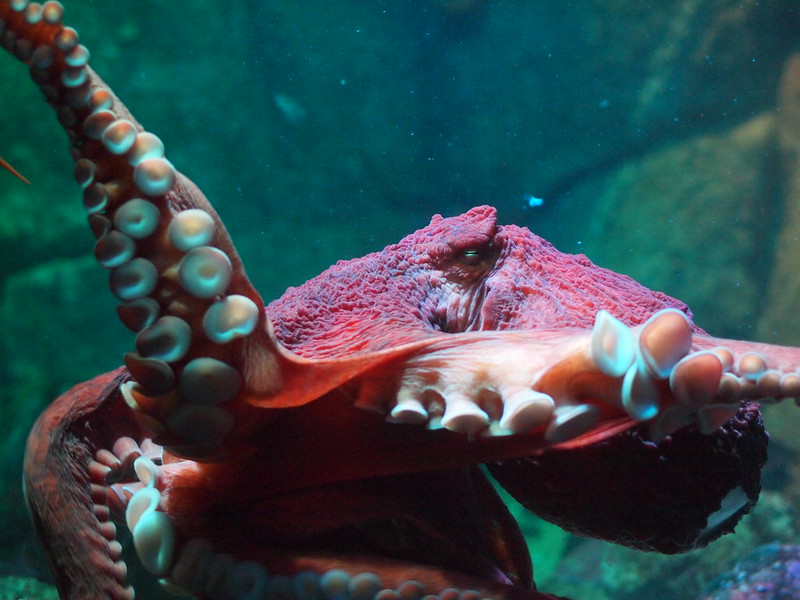
Giant Pacific Octopus. Photo by Bill Abbot via Flickr CC2.
We tend to put up false barriers between humanity and the animal kingdom. We are told that animal minds have certain limitations that they never cross. Skills like using tools, solving puzzles, and communicating are passed off as uniquely human traits, but other animals exhibit these behaviors all the time--and on camera. The giant Pacific octopus is no different. They use projectiles and make use of rocks and coconut shells. The Oregon Coast Aquarium in Newport has an octopus that solves puzzle boxes and mazes. The species is well known for its ability to unscrew jars, and in the Seattle aquarium, they use their suckers to play games of catch with the water filter.
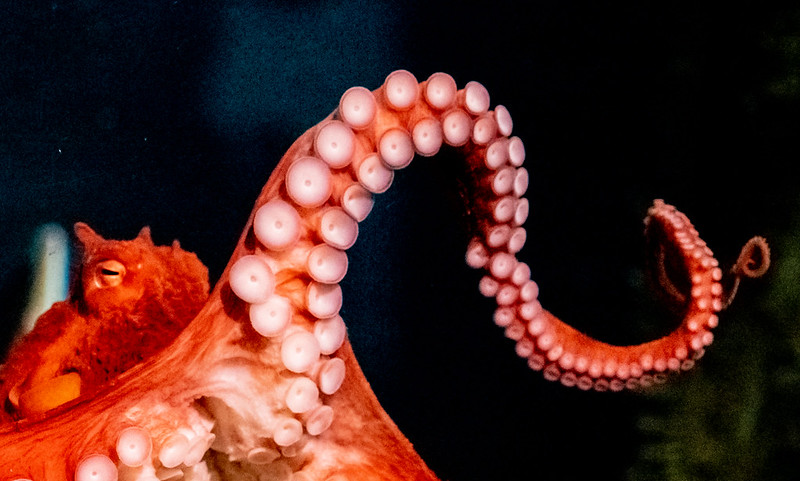
Giant Pacific Octopus. Photo by Josh More via Flickr CC2.
Their behaviors have led scientists to believe that they might actually be conscious. They show signs of having a personality, memory, and emotion. They're capable of remembering where their dens are, and they can recognize individuals and places they've hunted. This denotes a level of awareness.
While they might have many of the same intelligent traits as humans, their minds couldn't be more different. Octopus have nine separate brains, one in each tentacle, along with a central brain in their heads. Each brain acts independently and utilizes separate sensory organs, which means that its tentacles can act on their own. It's impossible for us to fully understand how this works out or what goes on inside their minds, especially considering the fact that their brains share no anatomy with a human's. But this is a mystery that scientists are determined to solve.
Meeting an Alien
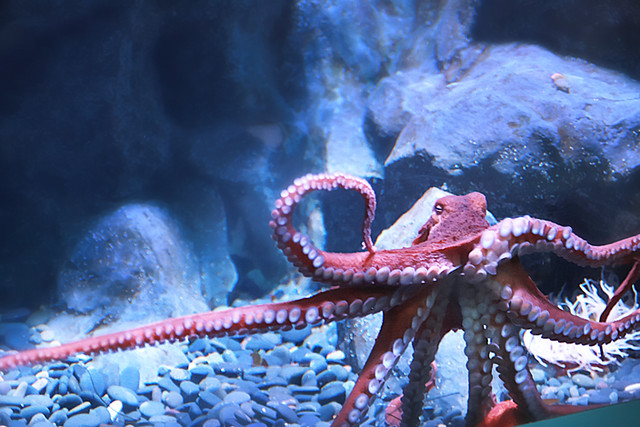
11828719966_bbb2c0295e_z
When those fishermen in Yaquina boy found the octopus stuck to their crab pot, they essentially looked an alien in the eye. The giant Pacific octopus might not be from another world, but it is from an alien environment. It has alien anatomy, most of which evolved separately from our own, and though it might not have the same type of intelligence, it does have similar traits.
In science fiction, we're often confronted with the conundrum of how humanity would react to meeting an alien. It's a question about our nature. Would we attack it? Would we recognize it as a conscious being with a right to life? Would we even recognize it as life? We should be asking the same questions when it comes to this species.
Since the giant Pacific octopus is difficult to spot and naturally skittish, we don't know much about their numbers, but we do know that they are falling prey to climate change en masse. Their natural prey is being killed off while rising water temperatures and a drop in oxygen levels are transforming their habitats into dead zones. Some try to migrate, but they don't have anywhere to go, and the mothers are staying and dying with their eggs. It's a tragic situation. Without aid, the species might not live.
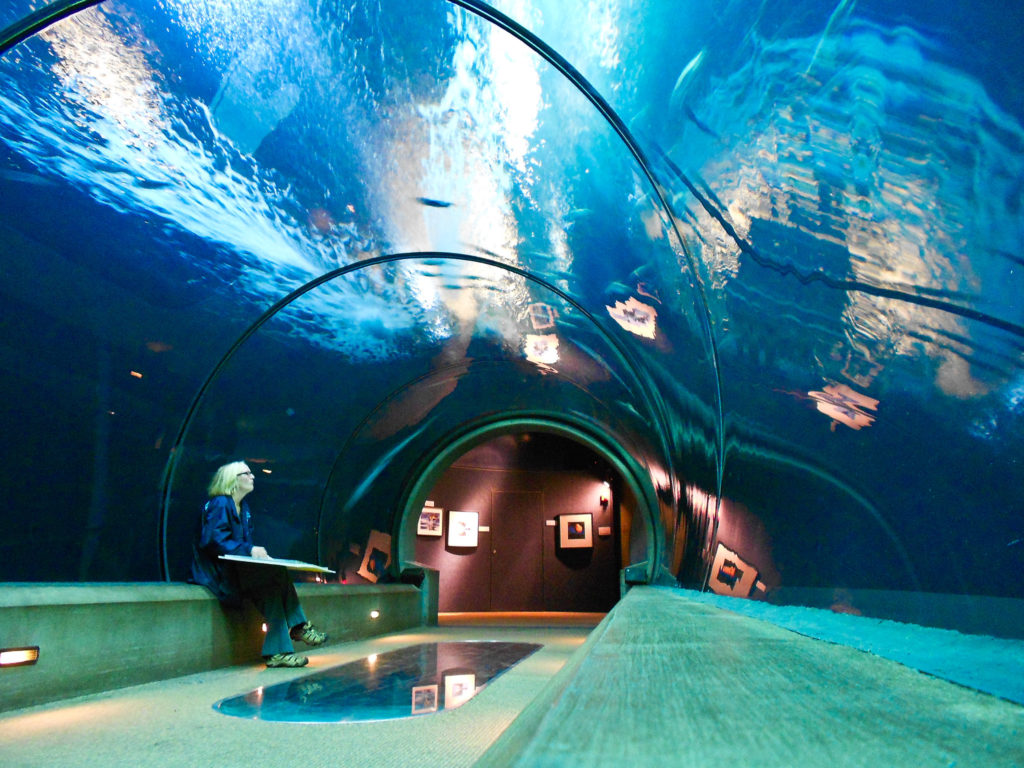
Oregon Coast Aquarium. Photo by Oregon Attractions via Flickr CC2.
Be sure to check out the octopus and other creatures at the Oregon Coast Aquarium in Newport Oregon.
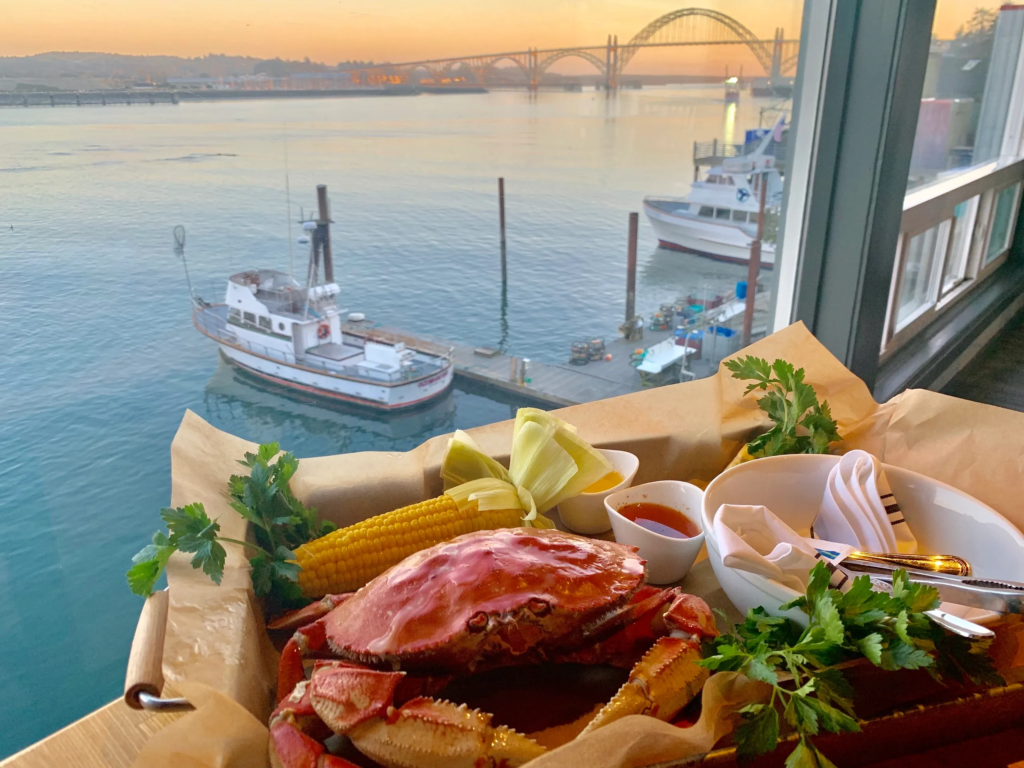
A lovely (and crabby!) view at Clearwater Restaurant in Newport, Oregon
While you're in Newport, stop by Clearwater Restaurant for delicious fresh food and gorgeous views.
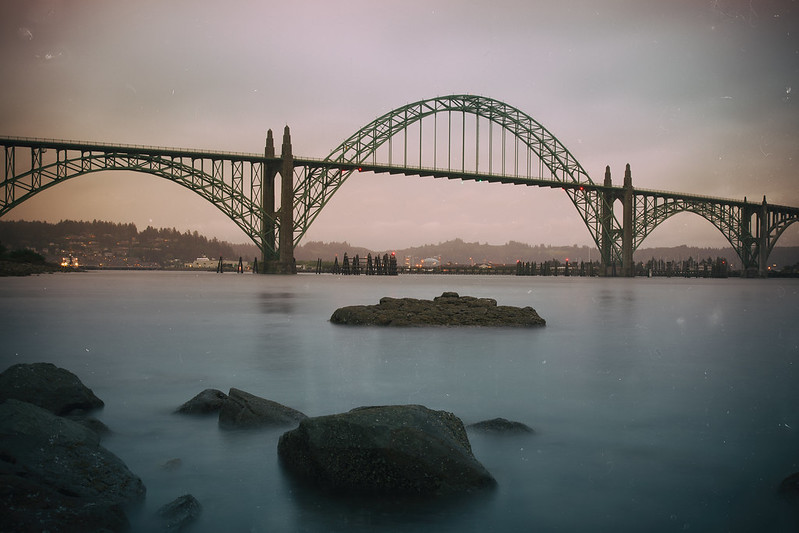
Yaquina Bay Bridge. Photo by Andrew Warren via Flickr CC2.
Don't forget to check out our list of awesome things to do and places to eat while in Newport Oregon in our guide here.

